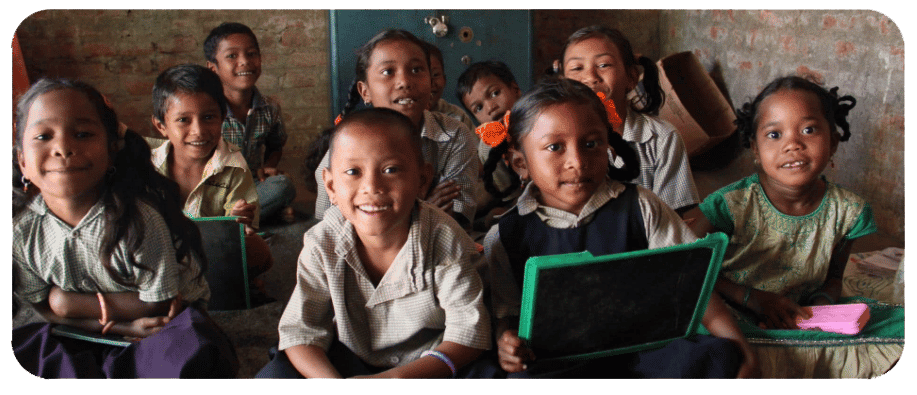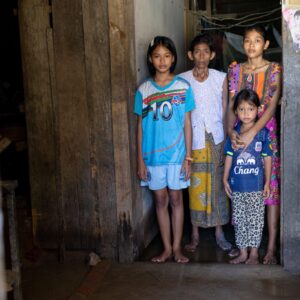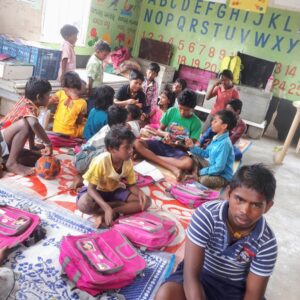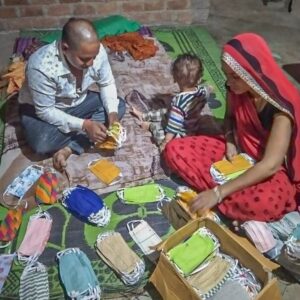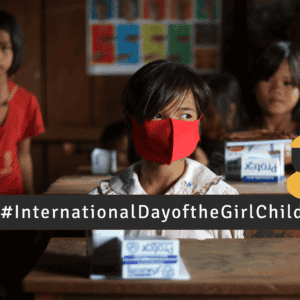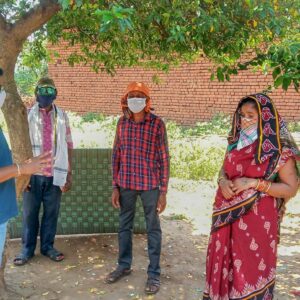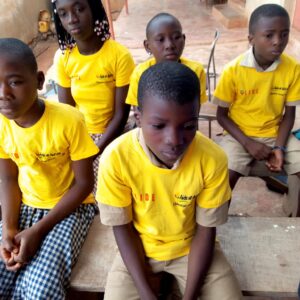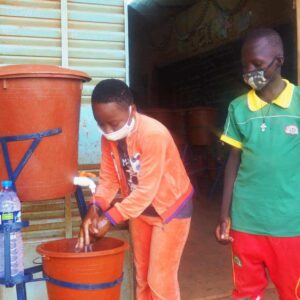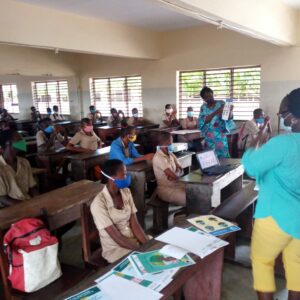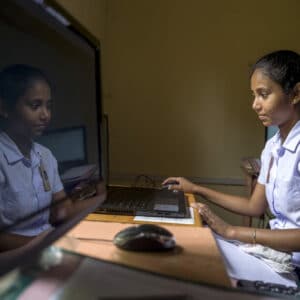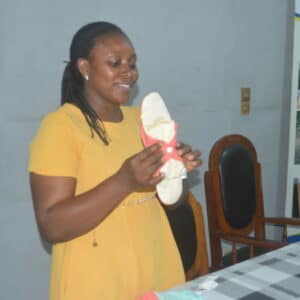With more than 1.5 billion schoolchildren and students currently deprived of education worldwide due to the COVID-19 crisis, World Book Day, celebrated on April 23, takes on a special meaning. For Aide et Action, access to books and reading is a priority under the fundamental right to education of each individual. Find out how we try to guarantee it, despite this difficult context.
“Today more than ever, when most of the schools in the world are closed and populations confined, the power of books must help combat isolation, strengthen the bonds between people and broaden our horizons, while stimulating our spirit and our creativity ”, this is what UNESCO specifies on the occasion of World Book Day, celebrated on 23 April.
New technologies positively complement education
Indeed, in this difficult period where 1.5 billion children and young people are deprived of education due to school closings, or more than 91% of the world’s learning population, reading appears to be a bulwark against school breakup. In Cambodia, for example, our activities are currently focused on using digital technologies to provide marginalized children with access to books during the Coronavirus crisis.
For the past eight years, Aide et Action has adopted Information and Communication Technologies (ICT) in its work for education. Following the recommendations of UNESCO which qualifies them as having “the power to complement, enrich and transform education positively“, our teams have integrated inclusive technologies to provide quality education in most of our projects. In 2013, the Khmer LEARN project was implemented to help improve reading, learning and teaching standards in Cambodia. Two years later, it was even rewarded by the country’s ministry of post and telecommunications.
330,000 users of our mobile application
Today, as the Coronavirus epidemic rages, Aide et Action is thinking of new ways to use this project to help those affected. To date, the application has been downloaded by 330,000 users across Cambodia and has 1,000 new users every day. By offering more than 1,000 titles of digital children’s books, in Khmer and in the languages of ethnic minorities, the application offers free access to books across the country. Audio books and educational games are also available. To diversify the content offered, daily storytelling sessions have also been put online.
But finding new content isn’t just for kids. Aide et Action also worked on a platform specially designed for staff, partners, teachers and parents, to teach them how to use technologies to educate children and facilitate learning at home.
“Our project is revolutionizing reading habits by providing free access to hundreds of e-books in Khmer and other languages for Cambodian children, adolescents and adults,” said Samphors Vorn, National Director of Aide et Action Cambodia. Thanks to the use of this technology, the limited access to traditional books in Cambodia is overcome in an efficient and engaging manner. “
However, we are aware that the availability of internet and devices varies considerably from family to family, as does the availability of space where students can study and learn. The use of ICT for education, which can also be a source of inequality, is of course only one of Aide et Action’s approaches.
Reading as a means of information and protection
Our main mission is obviously to ensure access to quality education for all. This is why, in India, our teams are also concerned with marginalized populations by guaranteeing their access to reading with regard to basic health information. The Bandipur and Mudumalai reserves in Karnataka and Tamil Nadu are home to many ethnic groups, each speaking in their local language. To ensure that the preventive measures related to COVID-19 reach these communities, Aide et Action has translated information communication materials into their languages.
Indeed, in the absence of a vaccine, the strict emphasis on social distancing and other hygiene measures are the only means available to prevent the spread of the virus. In this context, the quantity and nature of the information available is constantly evolving and not all of them reach not even to ethnic communities. “Thanks to Aide et Action, we received leaflets on raising awareness of COVID 19 in Kaadu-Kurumba,” explains Geetha, a teenager who lives in the tribal colony of Melukamanahally. The information is very useful for all of us. I was able to understand the precautions necessary to protect us from the Coronavirus. I will now explain this to our elders and young people in the community. » This health education material in local languages will benefit 4,400 people living in remote areas where we usually intervene to improve the quality of education.


